 OEF REVIEW:A potential initial public offering is under review for Saudi Arabian Oil Co., also known as Aramco, Mohammed bin Salman, the kingdom’s deputy crown prince, said in an interview with The Economist. A decision will probably be taken in the next few months, he said, without giving further details. “Personally I’m enthusiastic about this step,” Salman said. “I believe it is in the interest of the Saudi market, and it is in the interest of Aramco” by helping to promote transparency and counter corruption, he said. “This is an epochal change in the oil industry,” said Bob McNally, founder of Washington-based consultant The Rapidan Group and a former senior White House official. “Saudi Arabia is getting ready to ride the oil-price roller-coaster, not control it.”
OEF REVIEW:A potential initial public offering is under review for Saudi Arabian Oil Co., also known as Aramco, Mohammed bin Salman, the kingdom’s deputy crown prince, said in an interview with The Economist. A decision will probably be taken in the next few months, he said, without giving further details. “Personally I’m enthusiastic about this step,” Salman said. “I believe it is in the interest of the Saudi market, and it is in the interest of Aramco” by helping to promote transparency and counter corruption, he said. “This is an epochal change in the oil industry,” said Bob McNally, founder of Washington-based consultant The Rapidan Group and a former senior White House official. “Saudi Arabia is getting ready to ride the oil-price roller-coaster, not control it.”
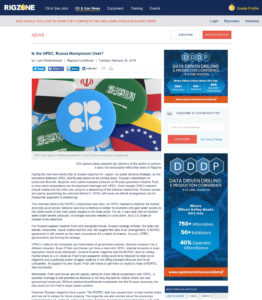 Russia’s mainstream oil producers Rosneft, Gazprom and Lukoil increased pressure on Russia’s president Vladimir Putin to slow down preparations for the expected marriage with OPEC…
Russia’s mainstream oil producers Rosneft, Gazprom and Lukoil increased pressure on Russia’s president Vladimir Putin to slow down preparations for the expected marriage with OPEC…

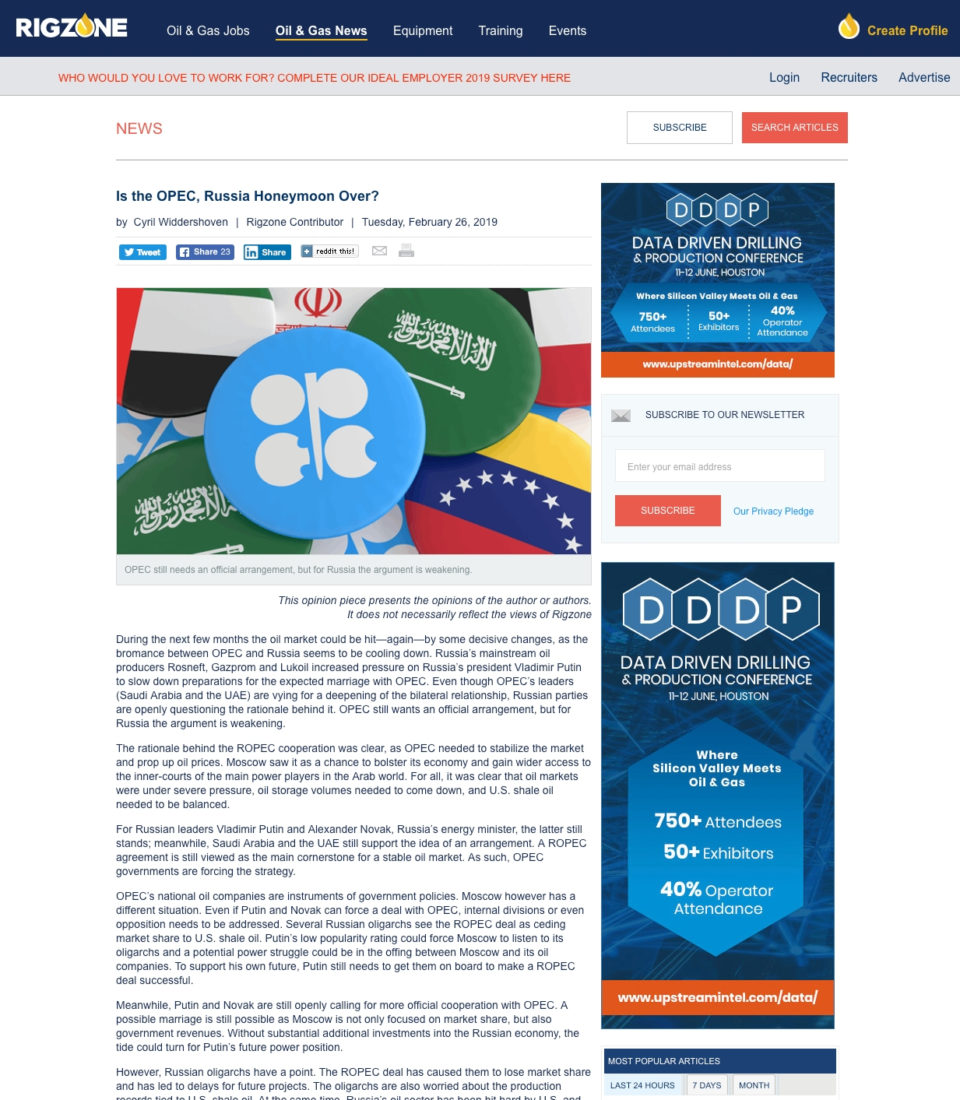
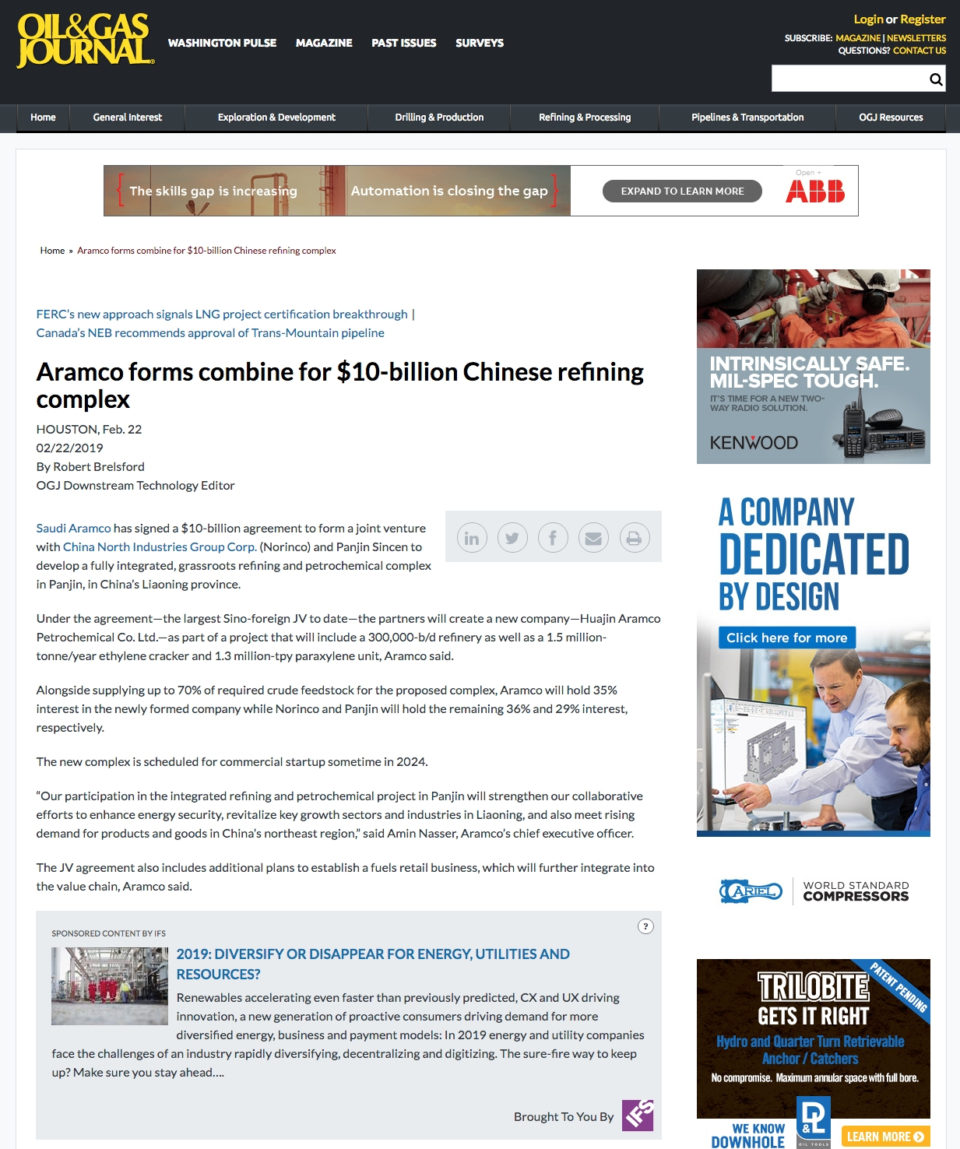
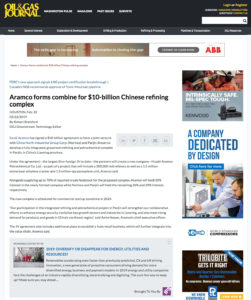 Saudi Aramco has signed a $10-billion agreement to form a joint venture with Norinco, and Panjin Sincen to develop a fully integrated, grassroots refining and petrochemical complex in Panjin…
Saudi Aramco has signed a $10-billion agreement to form a joint venture with Norinco, and Panjin Sincen to develop a fully integrated, grassroots refining and petrochemical complex in Panjin…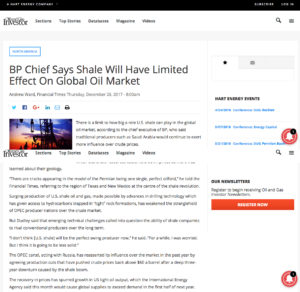 Bob Dudley, chief executive of BP, has said that there is a limit to how big a role U.S. shale can play in the global oil market, adding that traditional producers such as Saudi Arabia would continue to exert more influence over crude prices.
Bob Dudley, chief executive of BP, has said that there is a limit to how big a role U.S. shale can play in the global oil market, adding that traditional producers such as Saudi Arabia would continue to exert more influence over crude prices. 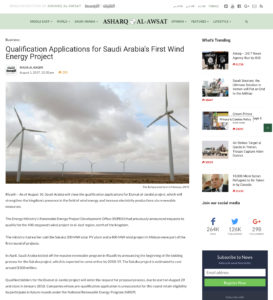 “We are pursuing one of the most ambitious renewable energy development programs globally, installing 9.5 GW of wind, solar and other technologies over the next six years.
“We are pursuing one of the most ambitious renewable energy development programs globally, installing 9.5 GW of wind, solar and other technologies over the next six years.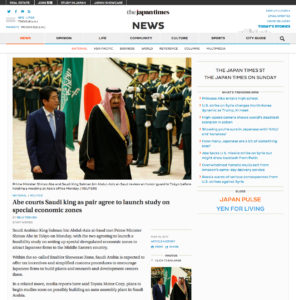 Saudi Arabian King Salman bin Abdul-Aziz al-Saud and Japan PM Shinzo Abe met in Tokyo and agreed to launch a feasibility study on setting up special deregulated economic zones to attract Japanese firms to the Middle Eastern country.
Saudi Arabian King Salman bin Abdul-Aziz al-Saud and Japan PM Shinzo Abe met in Tokyo and agreed to launch a feasibility study on setting up special deregulated economic zones to attract Japanese firms to the Middle Eastern country.